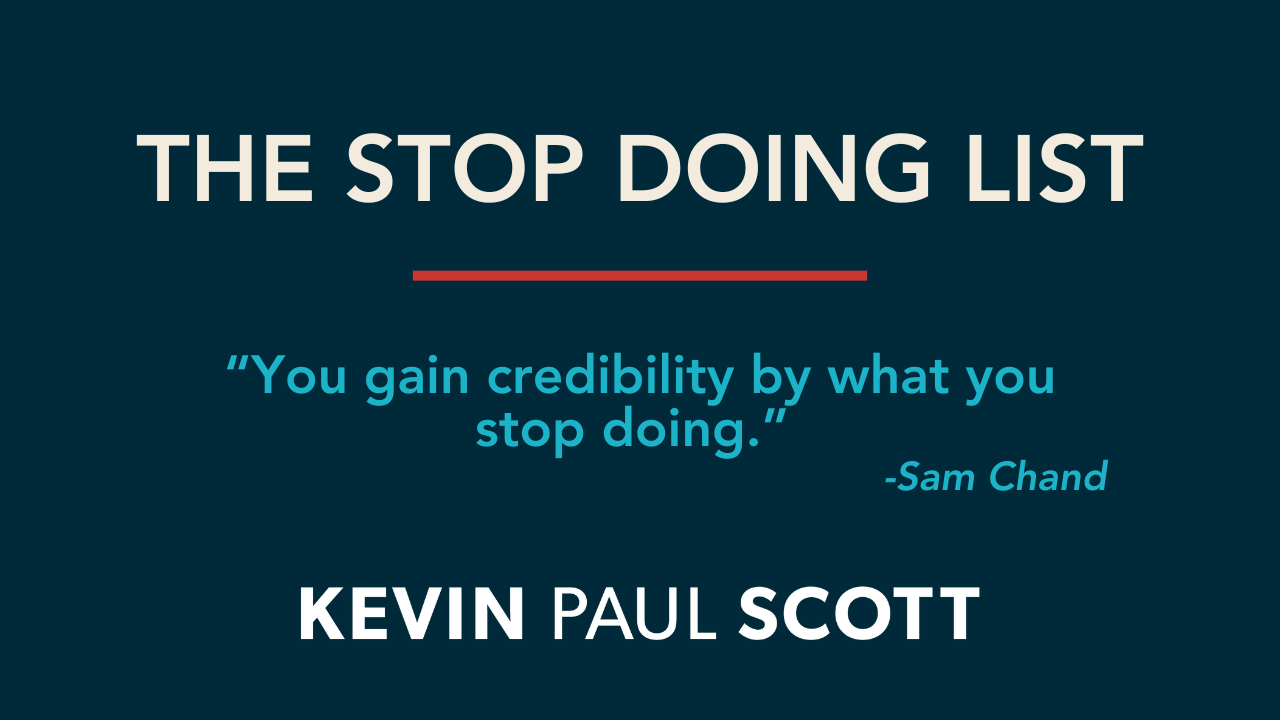Over the past couple of weeks, I’ve had the pleasure of encountering numerous great organizations. After each visit, I’ve reflected on the things that set these organizations apart and drive their success beyond that of the average company, nonprofit, or ministry. There are many things that great organizations do well, but I thought about three in particular and shared them with our ADDO team recently. I want to pass these practices along to you, as well.
1. Great organizations remember where they came from and don’t run from it.
A few weeks ago, I was at the Chick-fil-A corporate office with a colleague who had never visited their headquarters. After our meeting finished, I walked with him to their museum, a place dedicated to remembering and celebrating their growth as a company. In the museum, there is a replica of the very first Dwarf Grill. In 1946, Truett Cathy opened the Dwarf Grill (later called the Dwarf House), and it was his first step into the fast food industry. Fifteen years later, Cathy discovered the fried chicken recipe that would launch his famous chicken sandwiches and eventually, Chick-fil-A.
In an age so focused on the future, on growth, and on change, it’s easy to forget where we started. Often, we choose to forget it and even go to great lengths to run away from it. However, Chick-fil-A makes it a priority to remember and reflect on their history and origin. This practice reaffirms their identity as a company and provides an opportunity for them to reflect on their journey and celebrate their growth.
2. Great organizations draw their passion from a greater purpose, not individual projects.
At ADDO, our mission is this: Inspire today; impact tomorrow. This purpose infuses every business unit and each project we tackle. However, it seems easy for us to get off track. As a young organization, we can be overwhelmed by specific projects, On smaller teams, we can get so caught up in our specific project and our effort to perfect it that we could easily forget our purpose and overall goal as an organization.
Great organizations draw their passion from their purpose. Projects may change, but purpose does not. If an organization rallies more around individual projects instead of overarching purpose, it will become fractured. Separate colleagues will work toward separate goals and pull the organization in different directions. I want ADDO to be a great organization, so we are doing our best to learn from great companies who work hard to remain focused on the greater purpose.
3. Great organizations celebrate, and it’s central to what they do.
When you are at a football game, and your team scores a touchdown, it is a natural overflow of celebration to high-five a stranger cheering for the same team. There is no message on the jumbotron that says, “Now, it’s time to celebrate! High-five the people close to you!” You are excited and naturally share your excitement with the people around you.
Recently, a church in our area, NorthStar Church, celebrated it's 20th anniversary. It was fun to watch the genuine excitement of not only church members, but also the entire community, as they came together to celebrate the impact this church has made throughout the last two decades. At ADDO, we are also working to make celebration central to what we do. I remember the very first time we got a check from one of our clients. We were so excited! In fact, we took a picture with it, deposited the check at the bank, and went and got ice cream to celebrate. The celebration wasn’t contrived. We were genuinely excited about what we had the opportunity to do. We were passionate about our purpose to impact the world around us, and this felt like a first step toward success.
Now, it’s easy to brush off achievement as an expected part of everyday business, but we must continue to put celebration at the center of our organization. When new schools sign up for our programs, we should celebrate. When new clients come on board, we should be excited. Not because of some cheesy motivation tactic, but because the growth provides more opportunities to inspire more people to make an impact. That’s our goal in all of this, and it should be something we get excited about!
As an organization, we need to check our level of commitment to our purpose when we aren’t celebrating success.
Churches should celebrate when people experience a change of heart and a fresh faith encounter.
Charities should celebrate when new donors come on board because it provides them the opportunity to impact more lives.
Businesses should celebrate company growth because it provides more jobs for families, allows the business to interact with more customers, and gives them an opportunity to have a positive impact on the people they come in contact with.
When celebration is central, it fuels the great work of great organizations that can change the world.
Are you a part of a great organization? Consider the qualities I mentioned above. Could your church, charity, or business improve in any of the three areas described? Take some time to jot down some ways your organization can practically acknowledge its past, remember its purpose, and celebrate its success.

























.svg)




